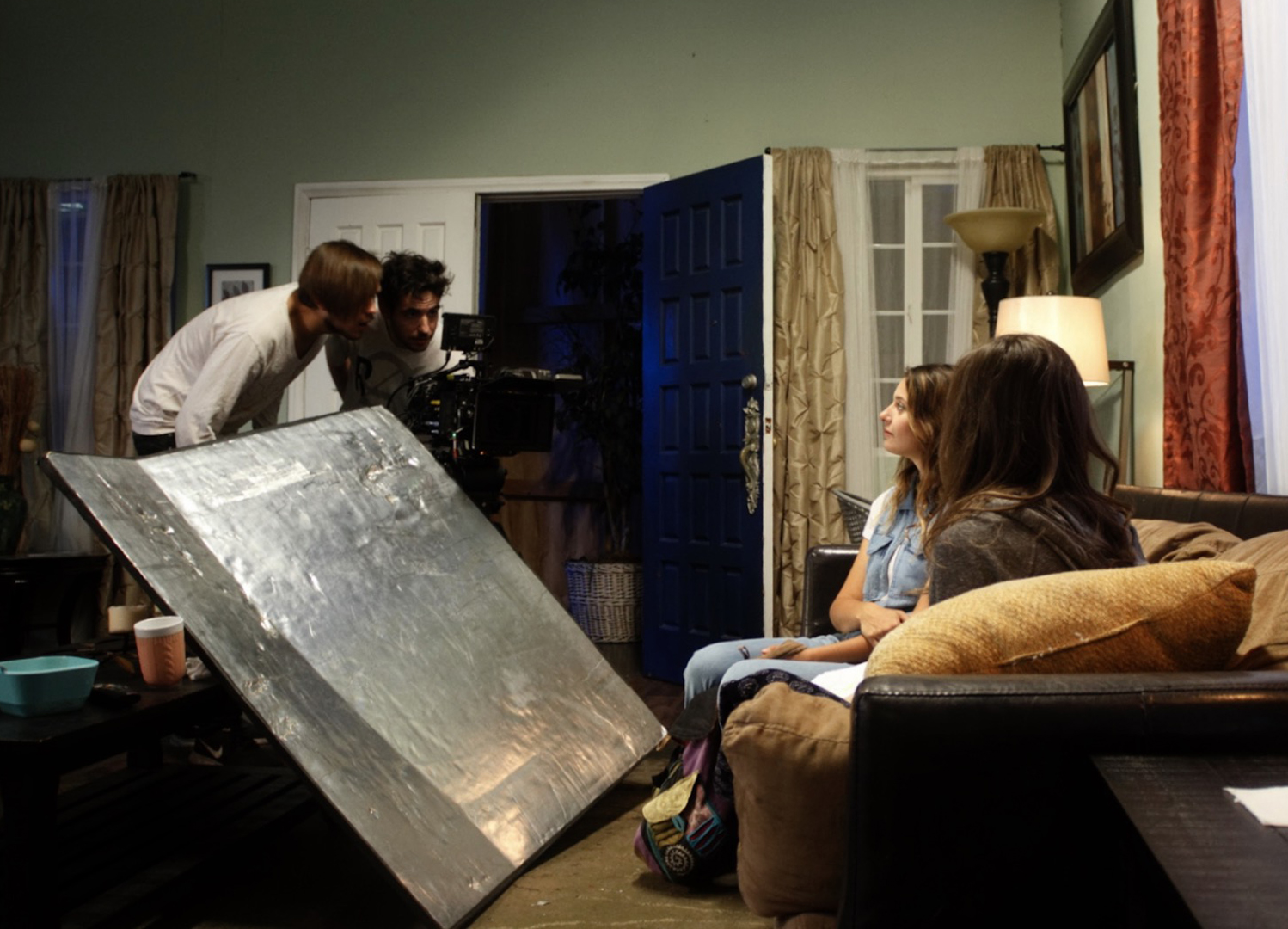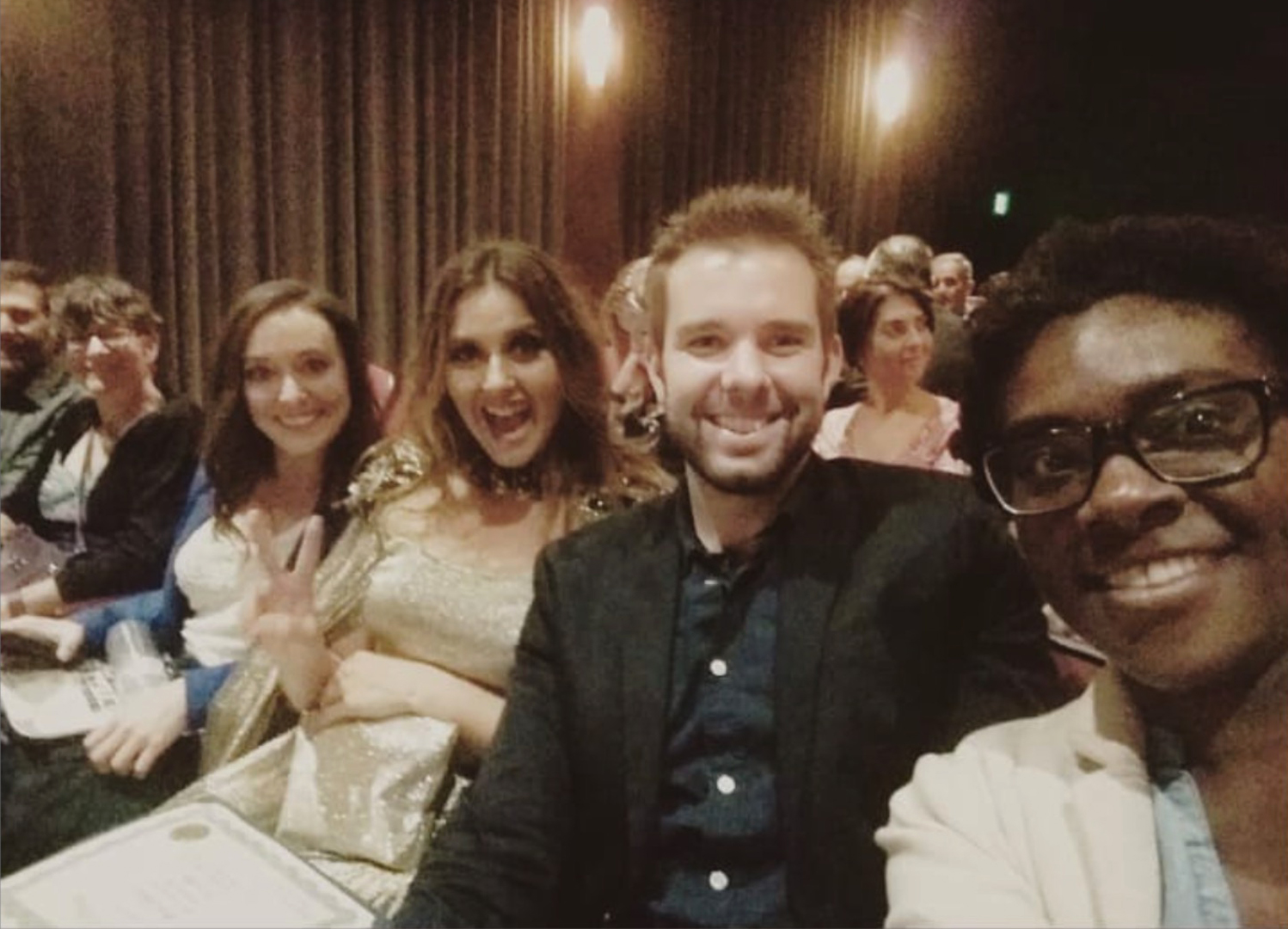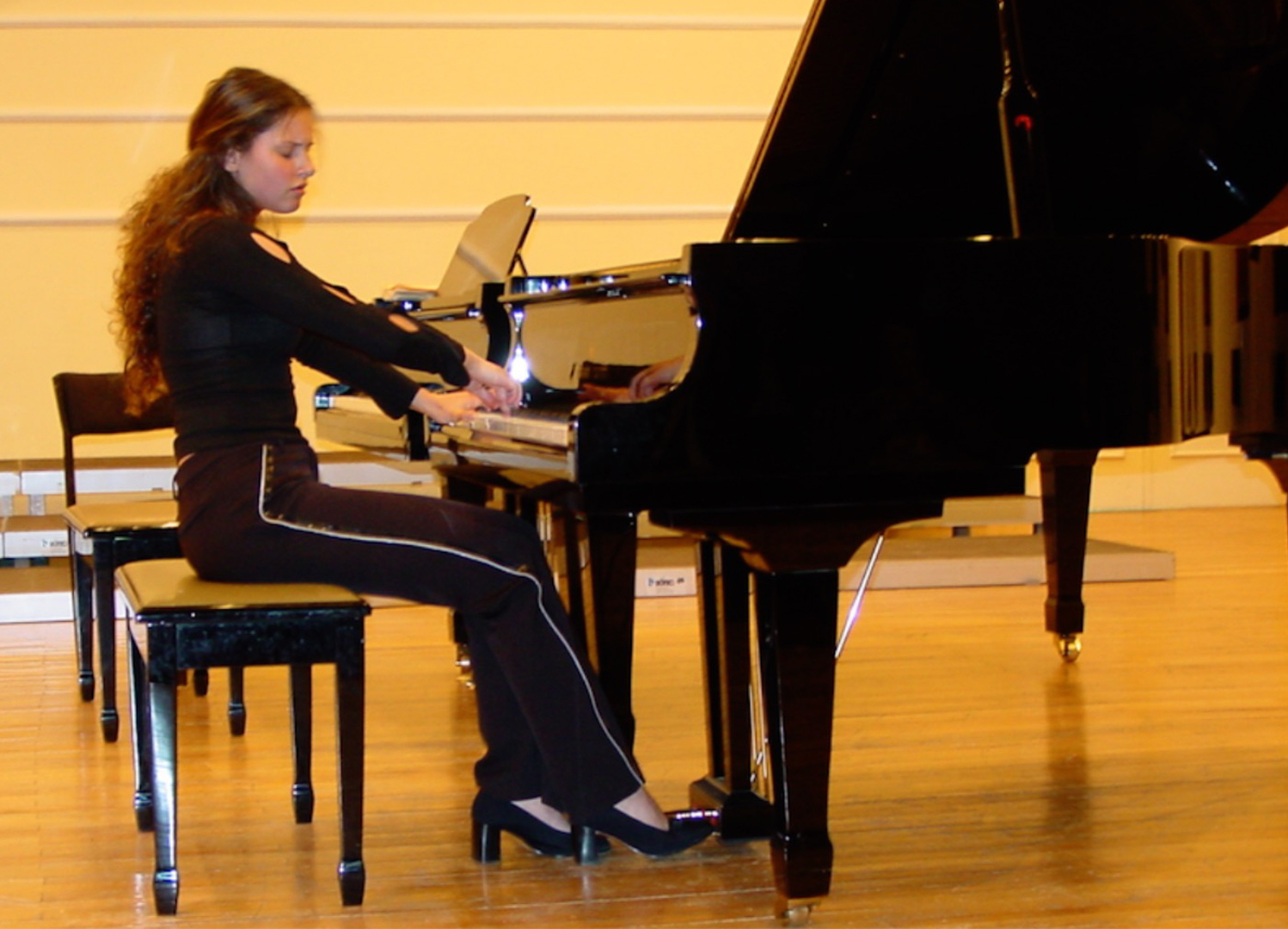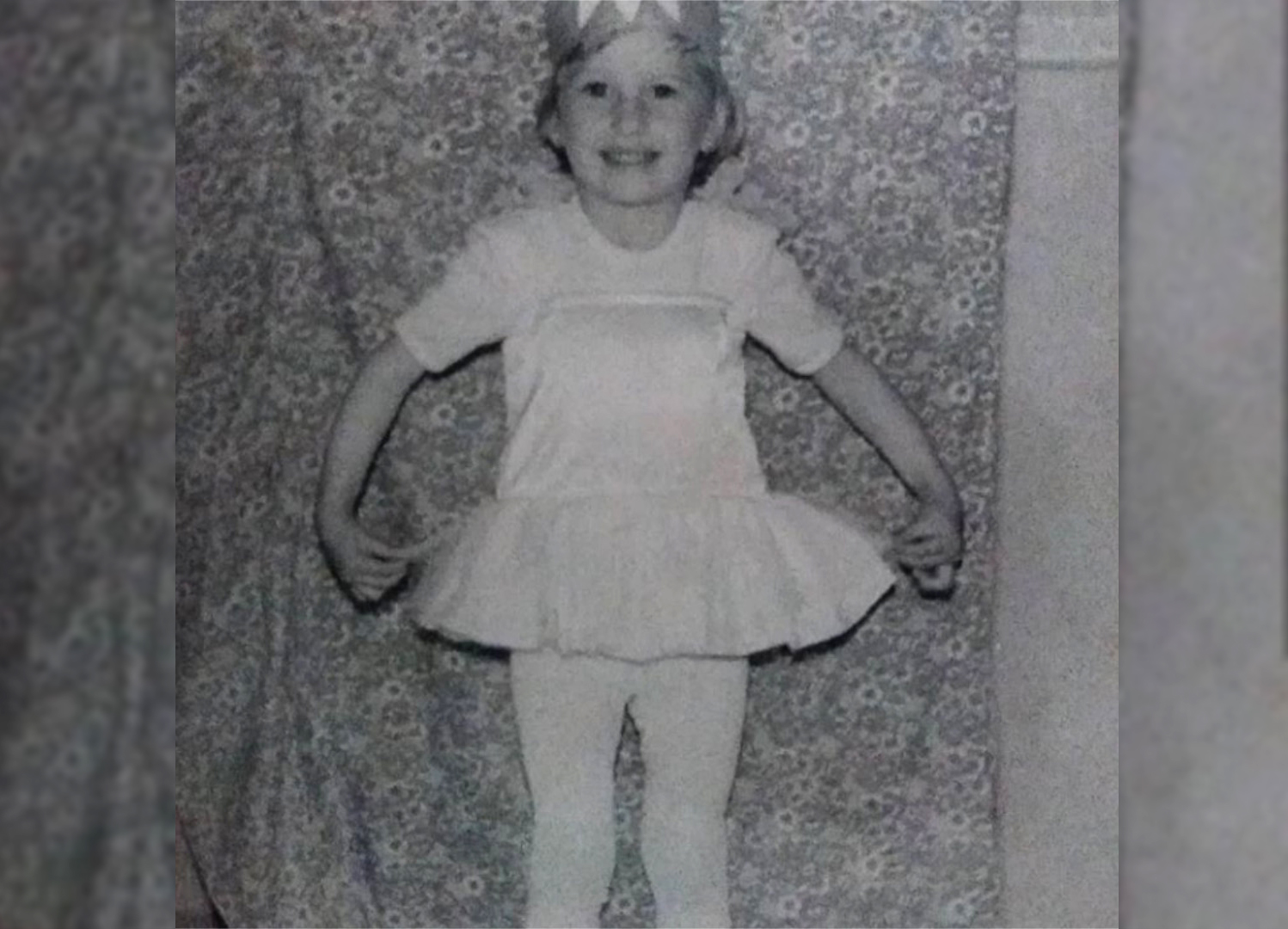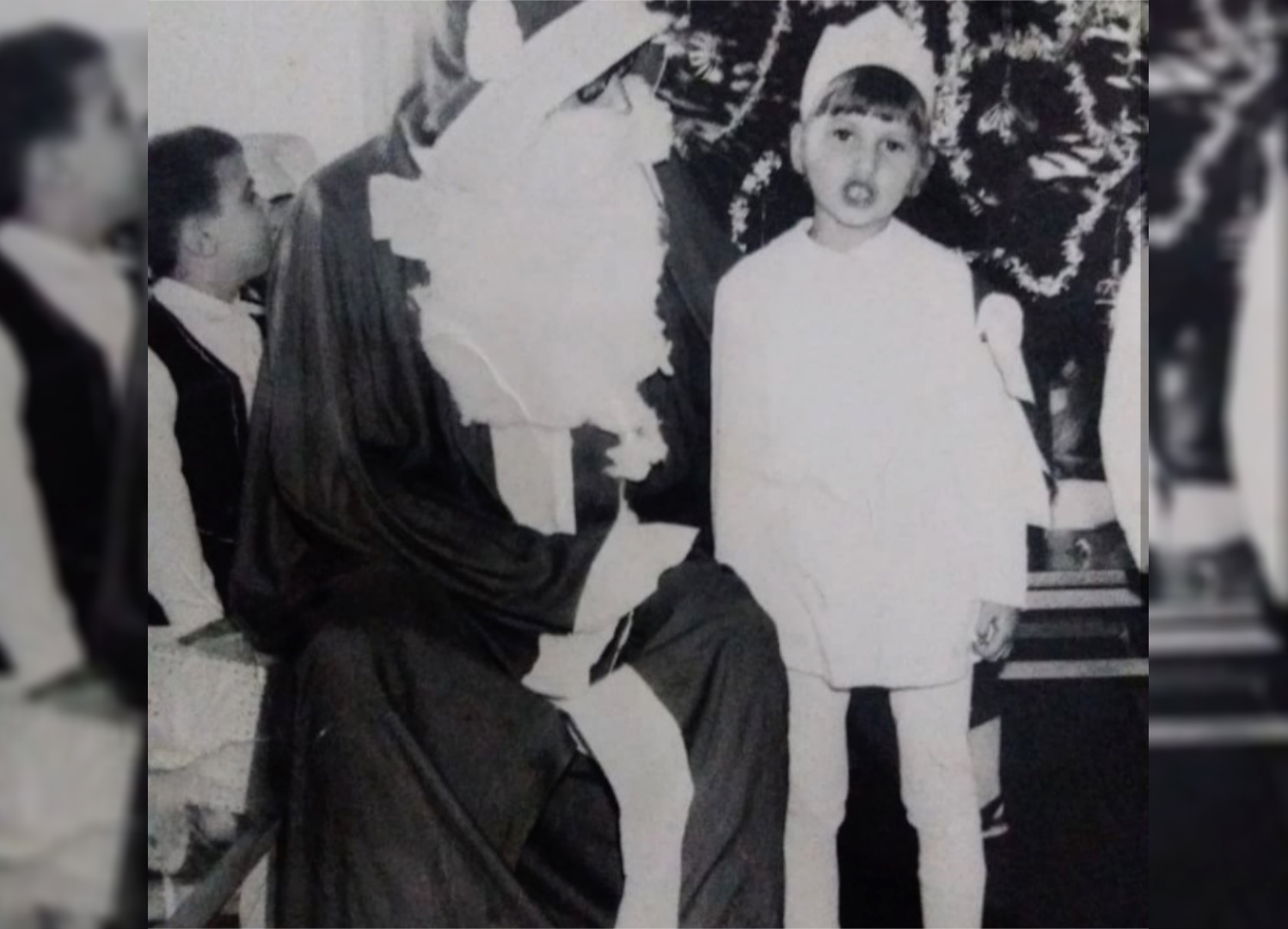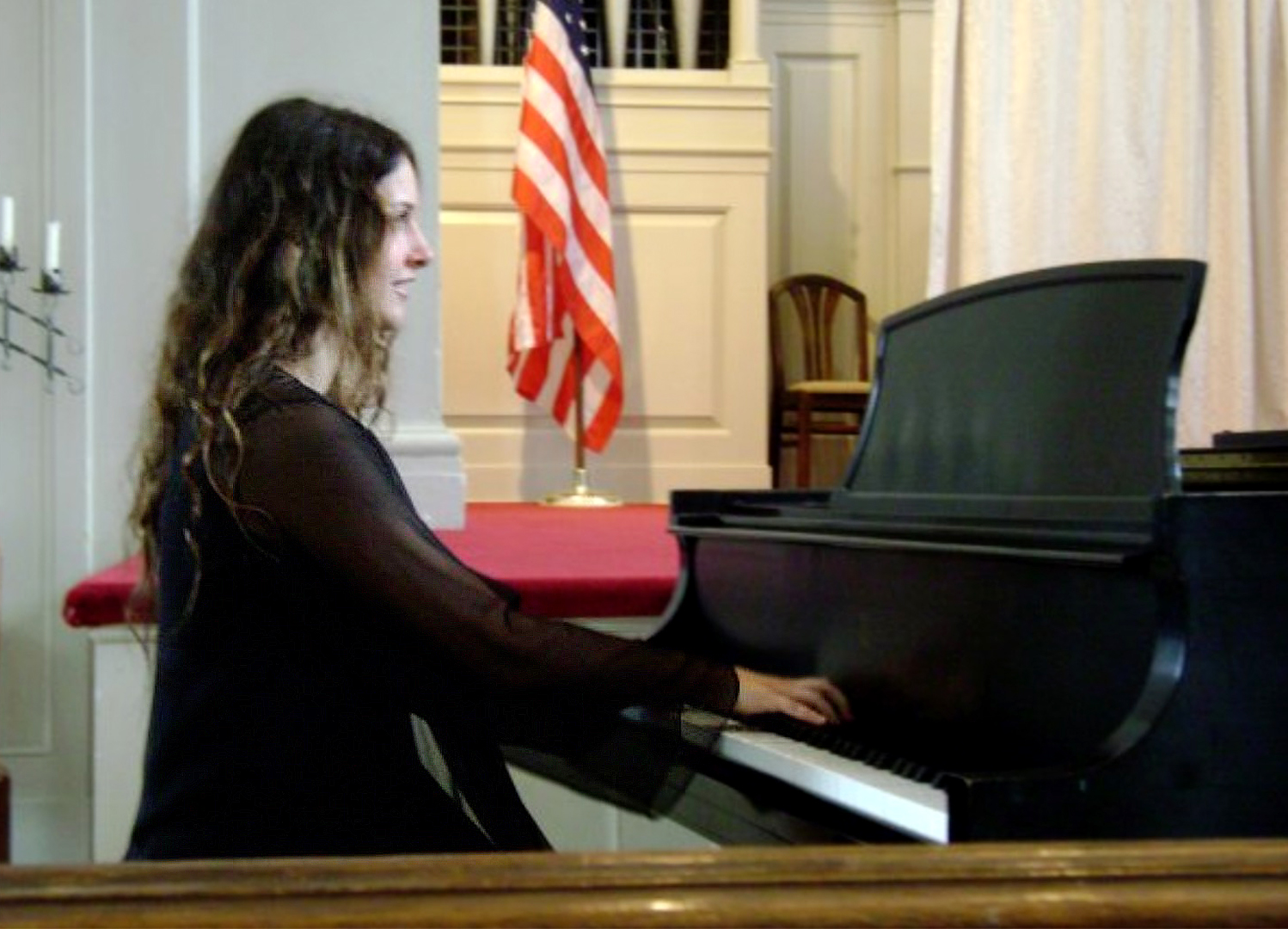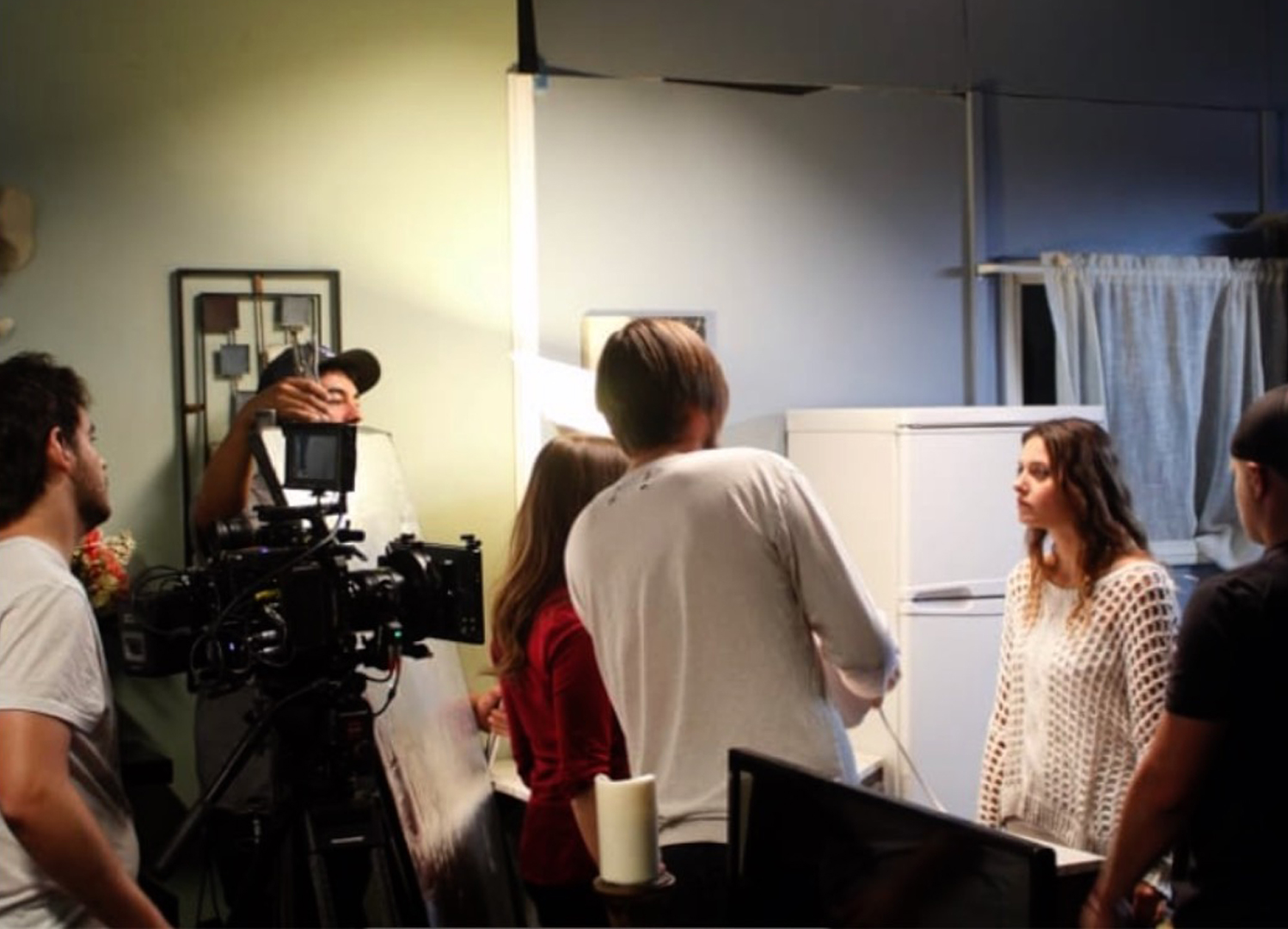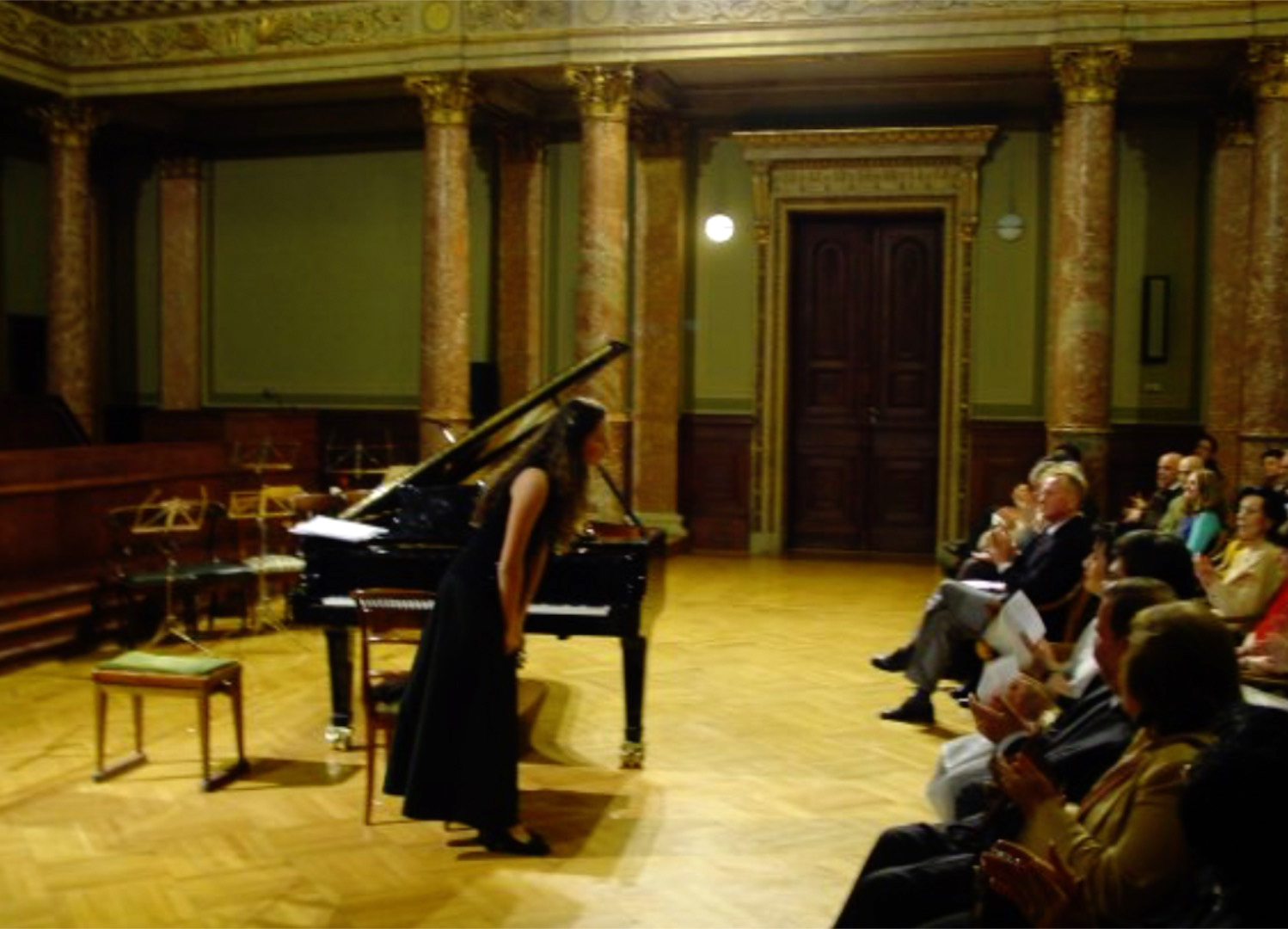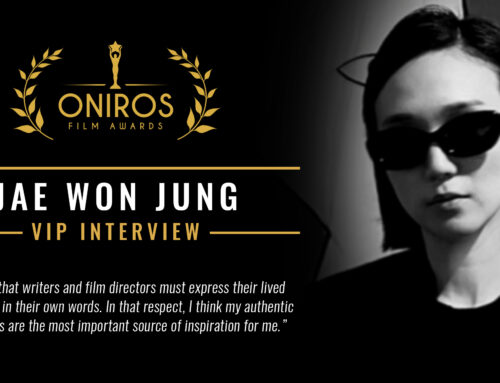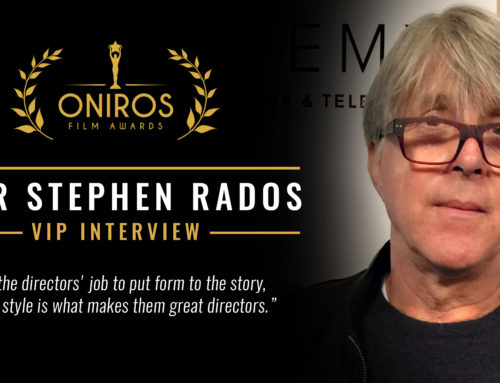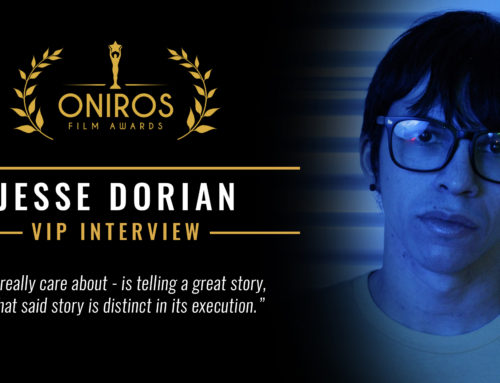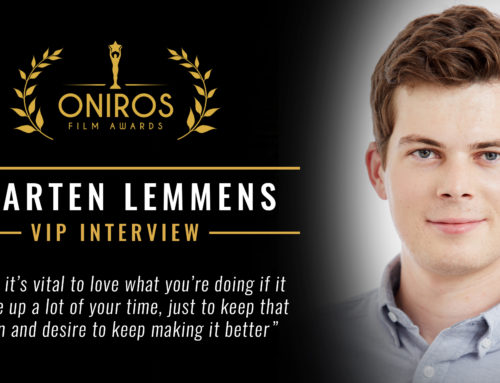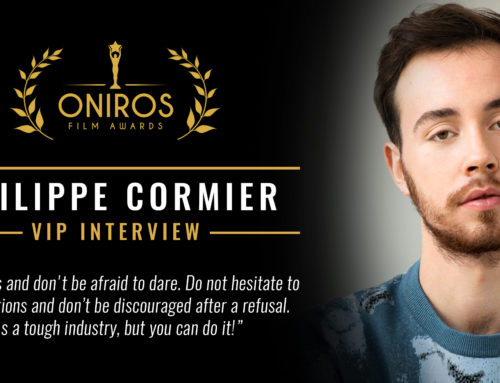BEYOND THE ONIROS FILM AWARDS®
VIP Interview with Sena Tunali, writer of the feature script ‘Zumrut’
by Alice Lussiana Parente
I had the pleasure of interviewing Sena Tunali, a talented filmmaker, actress, pianist, and writer. She has previously received an honorable mention at the OFA for her feature script Love Italy and she’s now working on the film adaptation of her newest script Zumrut. In this interview we talk with Sena about her versatile career, the inspiration behind this touching story and what’s next for her. We also tackle the importance of our roots, especially in a moment of world tumult and family separation.
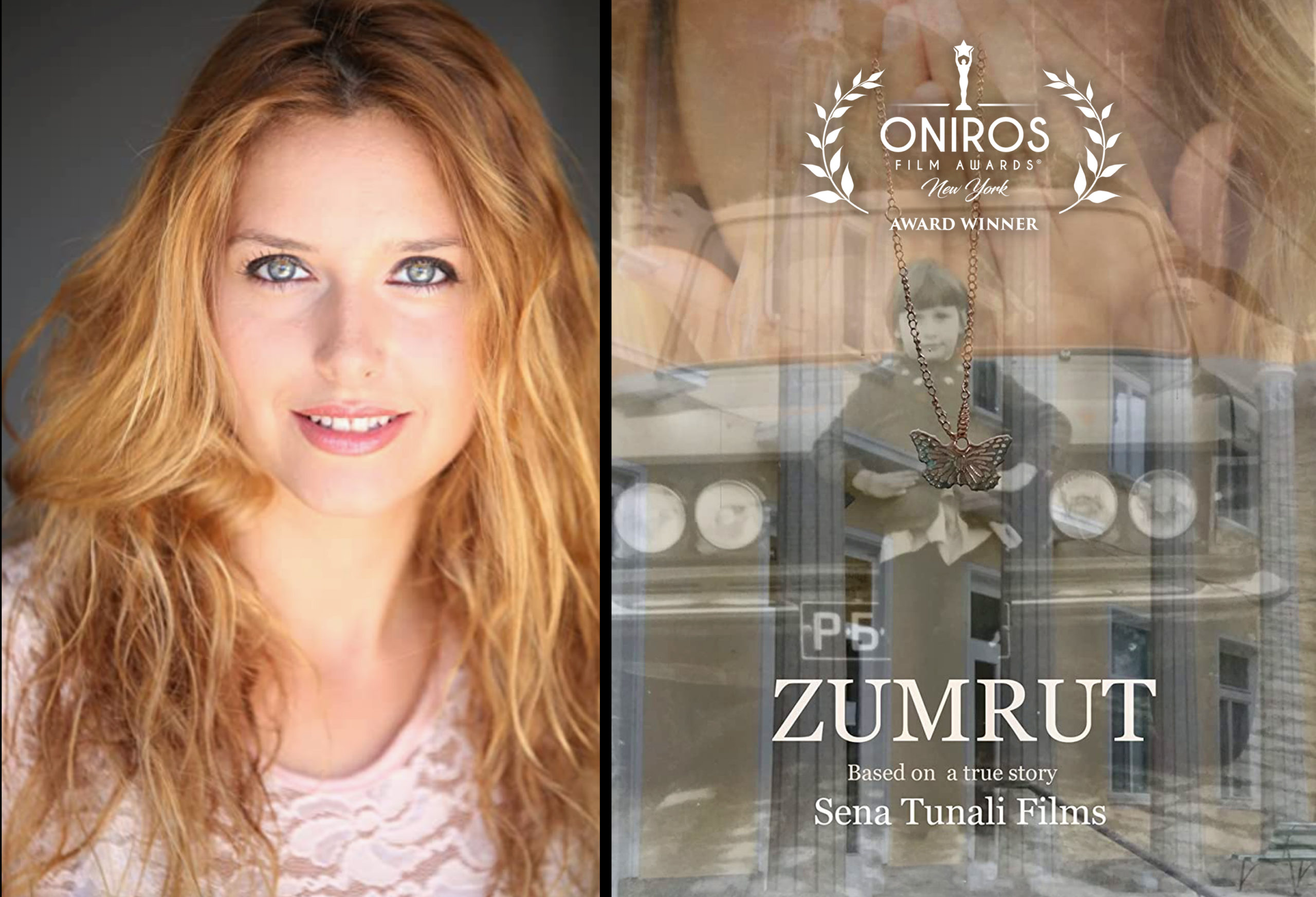
1. Hi Sena, can you tell us more about the beginning of your acting career?
When I was in the music academy, I was always attending the school plays and loved to act in some of them. So, for me, acting was always a part of the art-making that I am very affectionate. When I gave a concert in Greece, one of the head office members of the New York Film Academy saw me playing, invited me to be a student at the New York Film Academy through an email he sent, and learn about acting in front of the camera. When I got this email, I got so happy and answered “yes” to the email. My acting career started on my first day at the film academy. There was an audition right at the academy and me and my couple of friends decided to attend it completely coincidentally. I wasn’t expecting to book the job. But they have chosen me to play the part. After that, I started spending most of my time acting on short film projects in Los Angeles. As I kept going on the film sets, I realized that I love this job so much, and it is my source of happiness. I acted in more than 40 short films, and in every character that I played, I got a chance to express my feelings. The characters I played provide me a great sense of freedom. I realized that film sets are the place where I belong. Somehow I was always familiar with the placement of the cameras, the angles, the lighting, the production design, and all. It is like filmmaking is in my genes that passed me through a family member.
2. We know you are a successful concert pianist: when did you start playing and where did you study?
I started playing piano when I was three years old. Then my family and I decided to proceed with a professional music career. Due to my father’s jobs, we moved to Vienna, Austria. I was able to attend the Vienna Music academy to proceed the professional career. Then, after we moved to the USA, I went to Wheaton College and kept my music career going.
3. Besides being an actor and musician, you are also a producer and director. Which aspect do you find most challenging when producing a film?
Because I love filmmaking a lot, nothing is challenging for me. Even I get extremely tired I call it a “happy tired” but If I have to say something, I can say soft and pre-prod stages are a bit challenging. But as I keep moving to the next stages and see things cooking, I regain my hyperactive energy back and keep people motivated to happily move on.
4. Your feature script Zumrut is strongly autobiographical. Can you tell us more about the plot and if you often take inspiration from your own story when writing a script?
Zumrut project is the biggest adventure of my life. Because all of my writings are based on whatever we discovered through the researches we have made. In every new discovery we made, I immediately opened up my script and written them all down. And the most interesting part is, yes, I am writing the script, but whatever I write down is about my family members. The script itself was making me getting closer to them. Writing about something or a fiction story is very different than writing about your own family members. You are discovering your identity and who you really are, and where you really belong. We started our researches at the Ruse hospital, where Zumrut was left as a baby. However, there was nothing recorded at the hospital. And we had an extremely hard time finding out what has really happened. No one ever wanted to talk about it. There was only a couple of people who knew what has really happened. However, they prefer not to talk and treated us terribly. Only one person opened up when she was on her deathbed. She called us and started to tell us everything. Thank God!!! But most of the information that the lady told us was what that lady told us. I would love to hear all the reality and what has happened from my grandmother.
5. We also know that you are going to produce the movie adaptation of Zumrut. Can you tell us more about the production? Are you going to direct it?
I would really like to both direct and play in for my grandmother. Because whoever we met and whoever saw my grandmother says, I have exactly the same eyes and face she has.
6. Zumrut is such a personal story, how do you intend to cast the film? What are you looking for in this process?
I will be looking for the same look and same energy casts. Finding Zumrut would be challenging because she has this pure, innocent energy that would be hard to find in today’s world of high technology-influenced kid actors. I would even love to shoot the film in its actual places in Bulgaria. That way, it will be extremely close to reality. But definitely always open to alternative places outside of Bulgaria.
7. What was the hardest character to write and the one that came the most naturally to you while writing Zumrut?
The hardest character to write was the Servet character who raised Zumrut because I have never seen a person this much heartless in my life. She still tries to hide everything and pretends as nothing happened. And she is keeping on being the main reason for this separation.
Zumrut and Ismail characters were the characters that I was able to write more naturally.
8. In a time of separation, pandemic, and tragic events, where thousands of families are separated at borders all around the world, how important are our roots as immigrants but also as artists?
“Family and the roots are ones’ everything. It is who you are. Your ancestors are who you are. It is how you define and express yourself. Without your roots, you feel like you idly flying up in the air. You have people around you, but you still feel like the loneliest. Nowhere gives you the feeling of home because, your family is your home”.
Those are the words of my mother, Zumrut. She explains how she feels without her biological parents. We kept on doing more research, but due to the pandemic, everything has stopped. Borders were closed for a long time. Thinking about what if my grandmother needs us the most at this hard time sometimes brings me to a point where I feel like I will lose my mind. I think people who talk to their parents and family members through phones or social media are the luckiest ever. At least they hear about them. But absolutely, nothing would be the same as hugging, touching, kissing, and feeling their scent.
9. In the script, the characters also struggle with passports and documentations while leaving Bulgaria. This is a very current problem especially considering the heartbreaking images we’ve all seen of Afghans trying to escape Kabul. What was the message you wanted to communicate to the audience while introducing this topic in your script?
I would say, whatever happens, is human-made. I believe there is no need for borders. There is no need for separation between people. There is no need for wars. There is no need to make the world a terrible place for humans, animals, and nature. Everything is enough for everybody. There is enough food for everybody with the right allocation. There is the northern part of the world where most food has been trashed, and there is the southern part where people suffer from hunger and no water. Regimes change, and people escape. Regimes change, and people live happily ever after. At the end of the day, humans make the world a better place or a terrible place. If human beings can live with a child’s innocence even when they grow up, the world would be a great place to live.
10. Are you going to give a name to the character of Greek Mother or are you waiting to see if anybody comes forward after releasing the movie and finally be able to name her?
Well, the people we have met gave us the names Marika, Maria, and Caroline. But I really want and prefer my grandmother to come forward and tell us her name.
11. You also won an Honorable Mention as best feature script at the Oniros Film Awards with your previous script “Love in Italy”. Can you tell us more about the script?
Love in Italy is a fictional story. I happened to be in Tuscany, Italy. Such an inspirational place. I get a chance to meet with old twin-flame lovers who got married and keep on living happily ever after for 60 years. Their love and love story inspired me a lot to write the “Love in Italy” script.
12. What is next for you? What are you working on now?
I am completely focused on the Zumrut project right now. I also started writing Zumrut 2, where their adventures continue in the new country that they have escaped.
Connecting to Sena Tunali:
senatunali2711(at)gmail.com
www.instagram.com/senatunali2711
